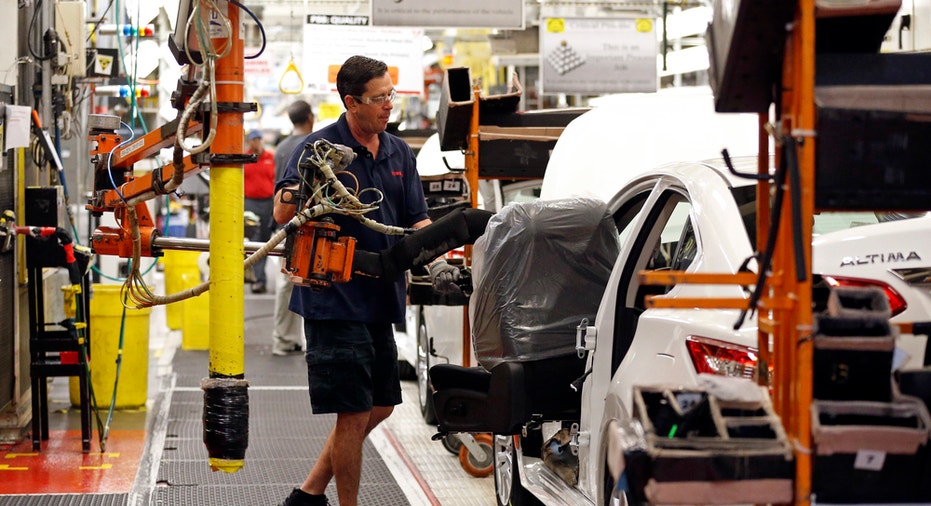Manufacturing jobs booming, but may be harder to fill

When South Korean appliance giant LG broke ground for a new one-million-square foot washing machine factory in Clarksville, Tenn. in August, Commerce Secretary Wilbur Ross was side-by-side with LG North American President and CEO William Cho cheering a project that is expected to create 600 jobs and perhaps many more in the years ahead.
“Our Clarksville factory has great potential to expand to produce other products beyond just washing machines,†said William Cho President & CEO LG North America during an interview with FOX Business. “We have 310 acres...and our new washing machine facility will occupy just one-quarter of that when it opens in early 2019. The other three-quarters will have potential to extend additional LG home appliances.â€
The plant, LG’s largest in the U.S., is set to open in the first quarter of 2019 and will add 600 well-paying jobs manufacturing jobs to the U.S. pipeline with potential for more. Cho says the company will focus some of its recruiting and hiring efforts on nearby Fort Campbell to tap what he describes as military veterans that are “skilled workersâ€.
Additionally, the company also announced plans to open an electric vehicle component factory in Michigan, creating an additional 300 new jobs, and is building its North American headquarters in Englewood, New Jersey which should double local employment to 1,000 jobs.
Additionally, the company announced plans to open an electric vehicle component factory in Michigan and is building its North American headquarters in Englewood, N.J., which should double local employment to 1,000 jobs, said Cho.
Toyota & Mazda to build a new $1.6B plant here in the U.S.A. and create 4K new American jobs. A great investment in American manufacturing!
— Donald J. Trump (@realDonaldTrump) August 4, 2017
LG joins a growing list of global companies coming to the U.S. to open factories to the delight of President Donald Trump. Earlier this year Foxconn, the Taiwanese Apple (NASDAQ:AAPL) supplier, announced plans for a Wisconsin plant that is expected to create 3,000 new jobs, while Toyota (NYSE:TM) and Mazda announced a joint-venture plan to build a $1.6 billion U.S. assembly plant promising 4,000 new jobs starting in 2021.
These future factories may help continue the U.S. manufacturing sector’s momentum as the country makes more goods, but its job growth may not carry the same momentum.
“Job growth may not be staggering, but we could staunch the bleeding. Could we boost manufacturing output, produce more stuff? Yes,†former White House director of economic policy under George H.W. Bush Todd Buchholz tells FOX Business.
Automation and technology is also creating a headwind. Over the next decade, more than three million manufacturing jobs will likely be needed, and two million are expected to go unfilled due to the skills gap, according to the National Association of Manufacturers (NAM).
“You’ve got to have folks who are trained to do those jobs†Jay Timmons, president and CEO of the National Association of Manufacturers, told FOX Business.
Timmons noted the industry and Department of Labor are doing their parts to help educate and introduce potential workers to "modern manufacturing" and argues those two million openings could be filled “If we do things right.â€
For now, the trajectory is upward. Manufacturing grew for the 13th-straight month in September, according to the Institute for Supply Management's (ISM) index, which hit 61.4%, the highest reading since May 2004. A reading over 50 signals the U.S. economy is expanding.
This year alone, manufacturers have seen healthy job growth, averaging 17,222 new jobs per month since December, as tracked by the NAM.
And if the U.S. economy can grow at a pace of 3-4% that should grease the wheels of the nation’s manufacturers even more.
Suzanne O’Halloran is Managing Editor of FOXBusiness.com and a graduate of Boston College. Follow her on @suzohalloran



















